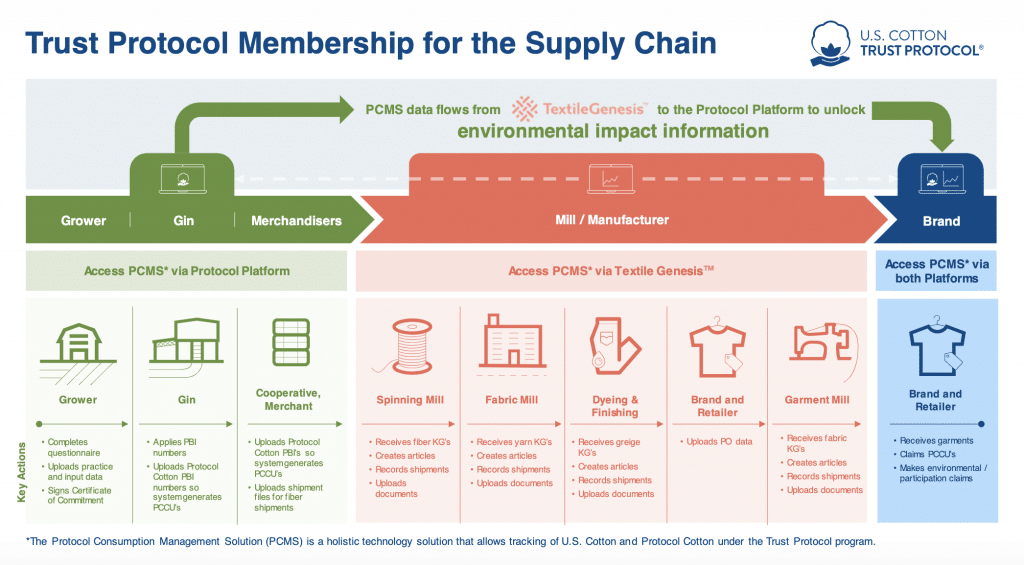Mills and Manufacturers
Mills and manufacturers who join the Trust Protocol are provided a host of benefits, with the biggest being they can be identified as part of a fully transparent supply chain and selected by brands and retailers as they look to source U.S. Cotton.
Since the Trust Protocol’s launch, the program has welcomed more than 2,000 mill and manufactuer members from 40 countries including Pakistan, Bangladesh, Cambodia, Colombia, Dominican Republic, Ecuador, Egypt, El Salvador, Guatemala, Haiti, Honduras India, Indonesia, Kenya, Mexico, Nicaragua, Oman, Peru, Philippines, Portugal, Sri Lanka, Tunisia China, Thailand, Indonesia, Vietnam, Turkey, Korea, Japan, Taiwan, the United States. The program also added 40 global brands and retailers including J.Crew, Madewell, Levi Strauss & Co. and, Gap Inc. as well as global apparel manufacturer Gildan.
Membership benefits in the U.S. Cotton Trust Protocol for mills and manufacturers include:
- Opportunity to be identified as part of a fully transparent supply chain and be selected by brands as they look to source U.S. Cotton
- Ability to use the Trust Protocol logo and materials to communicate about sustainability goals
- Recognition on the Trust Protocol website
- Access to a specialized package of technical support free of charge for members who license U.S. cotton and participate in the Trust Protocol
“The reason we joined the U.S. Cotton Trust Protocol was to show as U.S. cotton producers, we’re growing a good quality product, using the best quality practices available today.”

Jim Martin
Mills and manufacturers play a crucial part in the Trust Protocol and are vital to enabling article-level supply chain transparency through the Protocol Consumption Management Solution (PCMS).
The PCMS is our traceability and transparency solution that allows the tracking of U.S. Cotton and cotton specifically grown on Protocol producers’ farms.
Mill and manufacturer members create articles in the system that are then tracked and shipped, record individual shipments to other Trust Protocol mill members, and upload commercial invoices and shipping documents.
These actions help ensure that the data is accurately captured, which in turn aids in assuring brands and retailers of their products’ transactions throughout the supply chain. Without these necessary steps and without mill and manufacturers’ active involvement in the program, brands and retailers would not receive the transparency map that offers traceability.

Cost Structure for Supply Chain Participants
The annual Trust Protocol mill membership fee is $500 which permits the registration of a corporate headquarter and one additional manufacturing subsidiary. Additional subsidiaries where U.S. cotton will be processed can be registered for a fee per subsidiary as follows;

oUR pARTNERS
We are proud to work with the following members.

